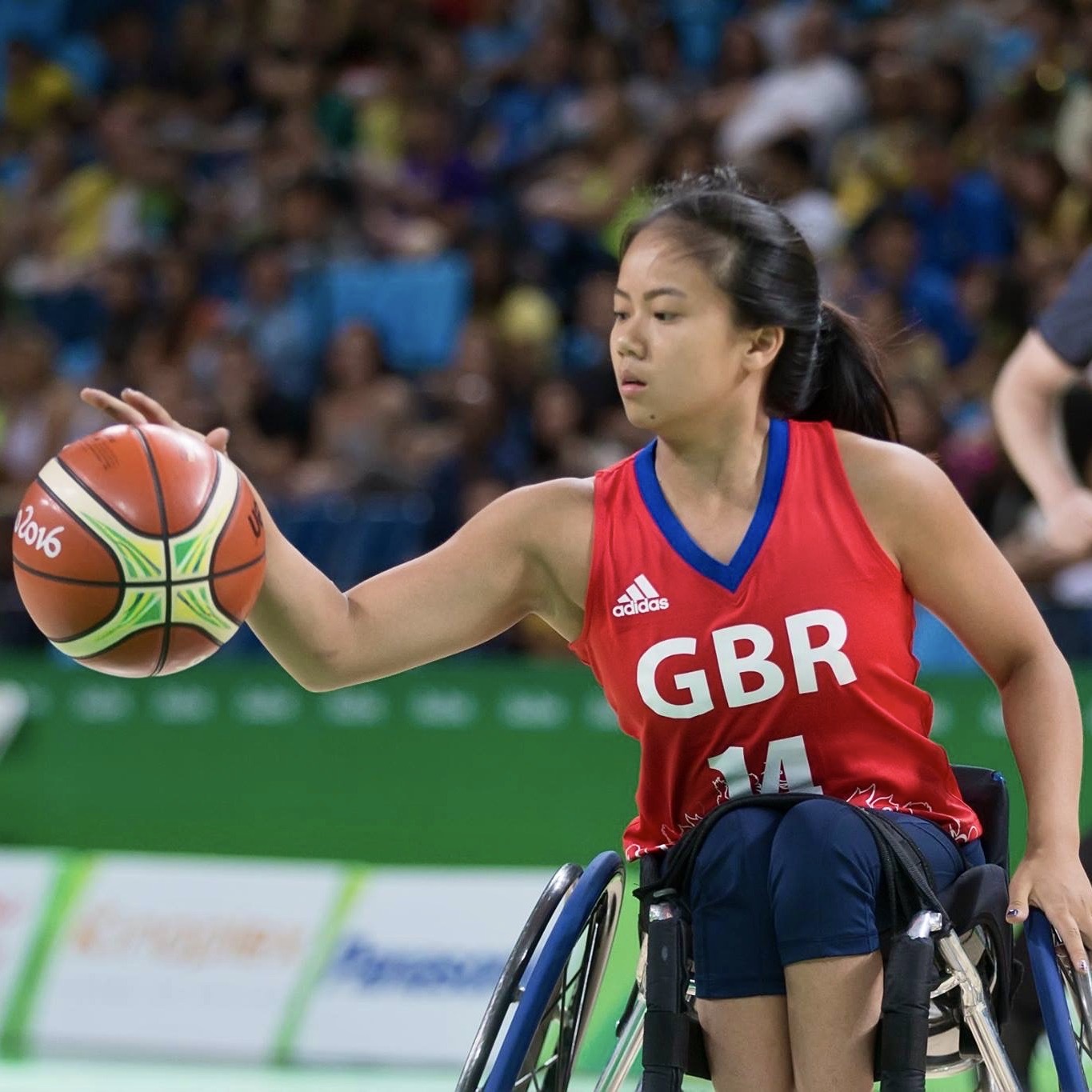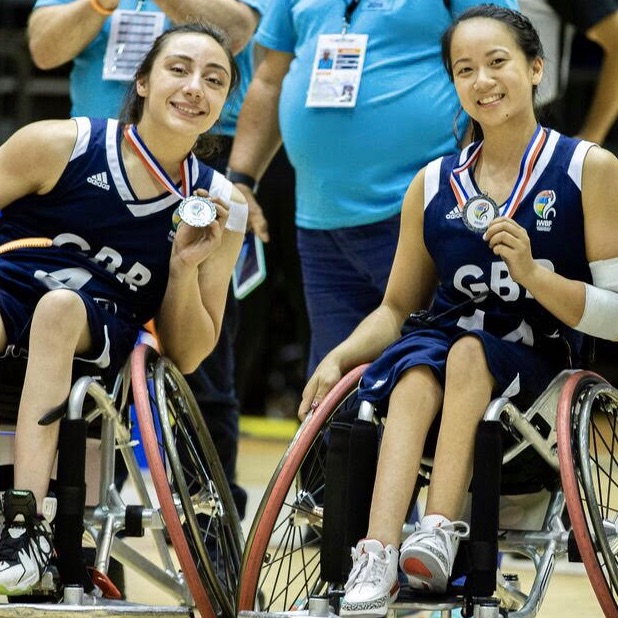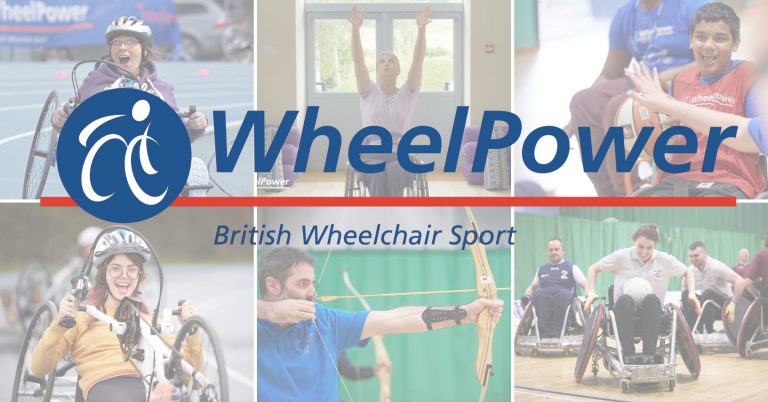
* This post is written by one of our volunteer ambassadors - it is not sponsored. *
My name is Joy Haizelden and for the last six years, I have been playing Wheelchair Basketball for Great Britain. I was born with Spina Bifida in China and was adopted at the age of six after moving to the UK. Last year I was awarded my degree in Health and Human Science at the University of Sheffield, and I am now exploring options to complete my Masters.
I first started wheelchair basketball when I was in secondary school. I couldn't participate in stereotypical P.E. lessons and would often feel left out, forcing me to watch from the sidelines or help out with admin tasks. Because of this, my dad went looking for ways to help me keep fit and stay active when a friend suggested taking part in a wheelchair basketball session. It was at this point that I instantly fell in love with the sport and have not looked back since.

I think it’s a fairly common occurrence for students with disabilities to feel like their school cannot provide a fully inclusive physical education. Instead, wheelchair basketball provided me with an opportunity to have more confidence in my physical abilities and set the groundwork for a passion for exercise and fitness. Basketball has also provided an opportunity to meet people like me, both in terms of disability and the determination to succeed in the sport. Because of this, the teams I have been a part of over the years have been integral to my wellbeing and overall sense of self.
I have a strong internal drive to be the best athlete that I can be, whilst also being motivated day in and day out, by the hard work and persistent effort of my teammates. I also want to repay the time and support my parents have given me over the years. They believed in me when I was just starting out in the sport, so I naturally want to make them proud.

There seems to be a misconception that ambulant athletes cannot participate in wheelchair sports, when in fact, there are many players that can walk onto the basketball court. The basketball wheelchair is just a piece of sports equipment, the same as a bike or canoe. People also seem to be surprised that wheelchair basketball is played on the same court with almost the same rules as the running version of the game. For example, the basket is the same height, the court is the same size, and players still have to dribble the ball when moving.
My advice to any aspiring athletes would be to not let anyone tell you what you cannot do. Play to your strengths and focus on what you can achieve. Find a sport or activity that you feel passionate about and pursue it to a level that you get the most enjoyment from. Take up any opportunity that’s offered as you’ll never regret the things you don’t do, and if someone else asks you this question – make sure you inspire the next generation of para-athletes!
WheelPower is the national charity for wheelchair sport with history dating back over 70 years and the work of their founder Professor Sir Ludwig Guttmann, the father of the Paralympic Movement. From their home, Stoke Mandeville Stadium they provide opportunities for disabled people to enjoy sport and physical activity, whilst benefiting both mentally and physically from leading a healthy and more active lifestyle.
WheelPower is at the heart of wheelchair sport in the United Kingdom and they continue to support thousands of disabled people every year through a calendar of sporting events, online exercise resources and funding to support individuals to reach their sporting potential. Find out more by clicking HERE and get involved!


Hi, I'm Lauren and I have been living with a collection of disabilities for the past 8 years. I initially had a passion for teaching children with special needs, but my health prevented me from pursuring my dream career. Despite this, I now love nothing more than sharing my experiences to help other people living with disabilities.
Hi, I’m Lori and was diagnosed with Ehlers Danlos Syndrome and a family of co-morbid conditions which has made life highly complex. However I constantly aim to make life as ‘normal’ and fulfilling as possible - and through this, I discovered the benefits of writing about my journey.
 GET IN TOUCH
GET IN TOUCH


